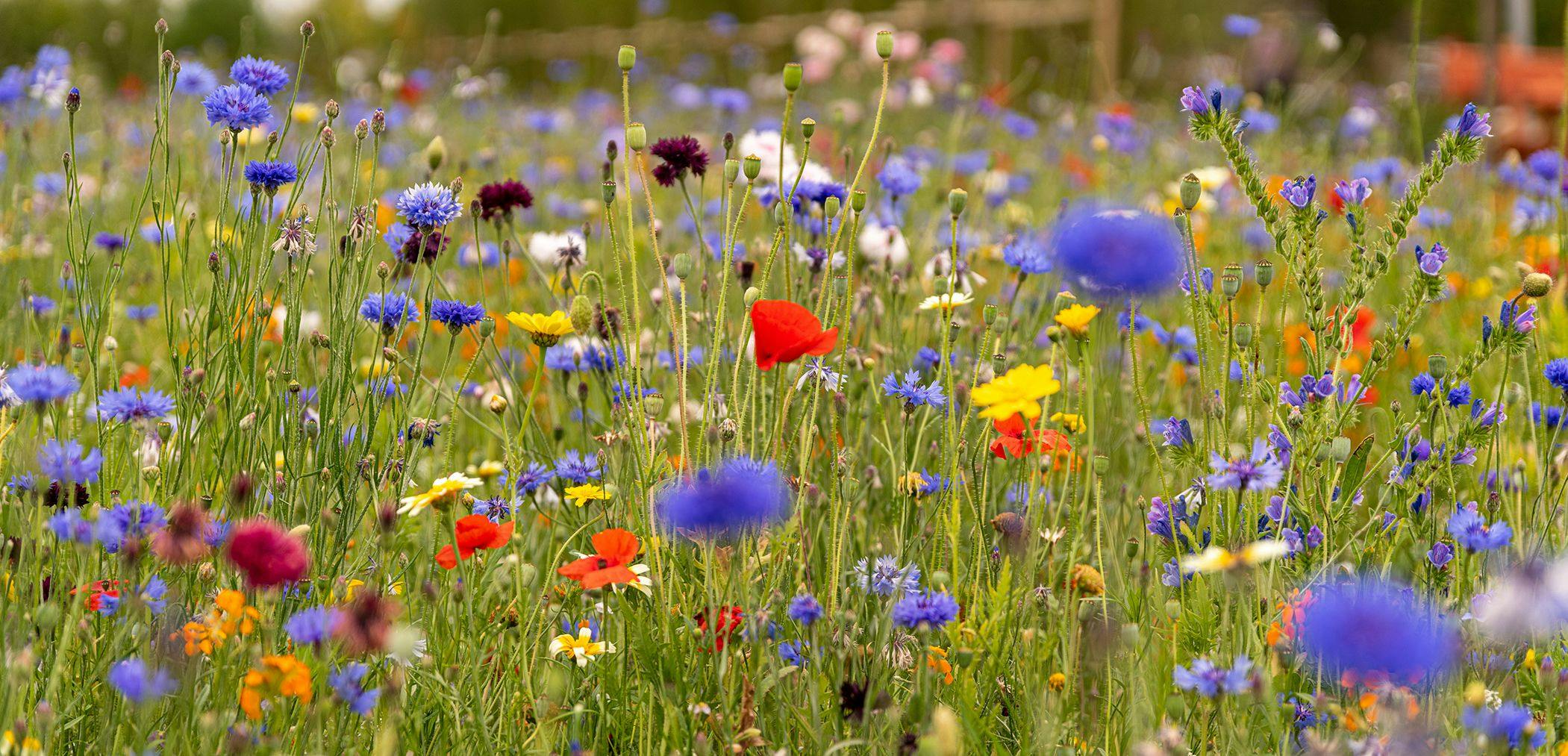
Welcome to the thick of summer, the hottest part of the year. Here are some essential tasks to keep your garden thriving:
cut flowers + nectar flowers
- Collect seed pods for reseeding and remove them from unwanted plants.
- Sow hardy annuals to plan for next year's colourful display.
- Pinch or shear back crazy daisies for more growth and flowers.
- Regularly pick cut flowers for continuous blooms and deadhead spent flowers to encourage regrowth.
- Continue to feed containers to extend their display into autumn and water them frequently.
Perennials
- Cut back long-flowering perennials like Geraniums to the ground and water for a second flush.
- Trim lavender to prevent leggy growth which leads to woody plants.
- Keep on top of weeds in your beds, especially in the warm weather.
- Prune wisteria and rambling roses after flowering.
Garden Greens
- Plant out leeks and brassicas; sow spinach and chard.
- Sow salad leaves under cover or in warmer areas.
- Watch for blight on tomatoes and potatoes; protect them if necessary.
- Sow a final batch of beetroot with different varieties.
- Weed regularly and remove dead or diseased leaves.
- Continue feeding tomatoes along with lots of water.
- Sow basil, marjoram, borage, chives, coriander, and dill in pots outside.
- Cut back herbs for new leaf growth before the frost.
- Divide chives and sow hardy salads and herbs for a sheltered spot.
- Propagate rosemary and take cuttings from other tender perennials.
- Cut back bronze and green-leaved fennel to prevent dominance.
- Sow parsley and chervil for a winter herb supply.
Odd Jobs:
- Watering becomes even more crucial now. Stay on top of it every day, making sure to water in the morning or late afternoon to prevent evaporation before reaching the roots.
- If you're going on holiday ask a friend to lend a hand in picking flowers, salad, and veggies so they don't go to seed.
- Mow wildflower meadows as orchids and yellow rattle have dropped their seeds. Let the cuttings dry for a couple of days to disperse the seeds, then rake them up. Avoid using grass clippings as mulch since low fertility is vital for success.
- Take a look at your borders and make a note of any gaps or overcrowding that you'll want to address later in the season when plants finish blooming, getting ready for next year.
- Order your spring-flowering bulbs now to secure popular varieties before they become hard to find. You can start planting bulbs like narcissi, alliums, and hyacinths in September. Also, consider ordering an autumn stock of perennials to give them time to settle before winter.
Wildlife & Pests:
- Set up earwig traps for dahlias by putting an upturned pot filled with straw or shredded newspaper among the plants. The earwigs will crawl inside, and you can empty them in the morning.
- Trim evergreen box and yew balls and hedges, ensuring good airflow to prevent box blight. Remove a few inner branches and create space around the plants. Apply a systemic fungicide and remove surrounding plants to protect against the fungus.
- Prune rambling roses by removing a third of the flowered stems and tying back the rest.
- Save flower seeds as plants start to wither. Dry them in individual paper bags and label them for next year's planting.
- Trim back wisteria by cutting the recent whippy shoots to five or six leaves each, promoting better flowering and improved airflow.
- Tidy up wildflower patches by mowing or using a strimmer, allowing the dried stems to scatter their seeds for next year's growth.
- Before you go on your summer holiday, set up a watering system to keep your plants well-hydrated while you're away.
On the Allotment:
- Protect your autumn berries by covering blackberry bushes, raspberry canes, and late strawberries with nets to keep birds at bay.
- Stay vigilant against blight, a fungal infection that affects tomatoes and potatoes. Remove affected foliage promptly to slow down the process and potentially save your harvest.
- Lift the runners of summer fruiting strawberries, either giving them away or potting them to fill gaps or replace ageing plants. This will ensure a delicious harvest year after year.
- Harvest a variety of crops, including cucumbers, runner beans, carrots, tomatoes, onions, and shallots. Enjoy the bountiful produce of summer and dry onions and shallots in a sunny spot before storing.
By tending to these tasks, your garden and allotment will thrive during the peak of summer, providing you with an abundance of fresh produce and beautiful blooms.